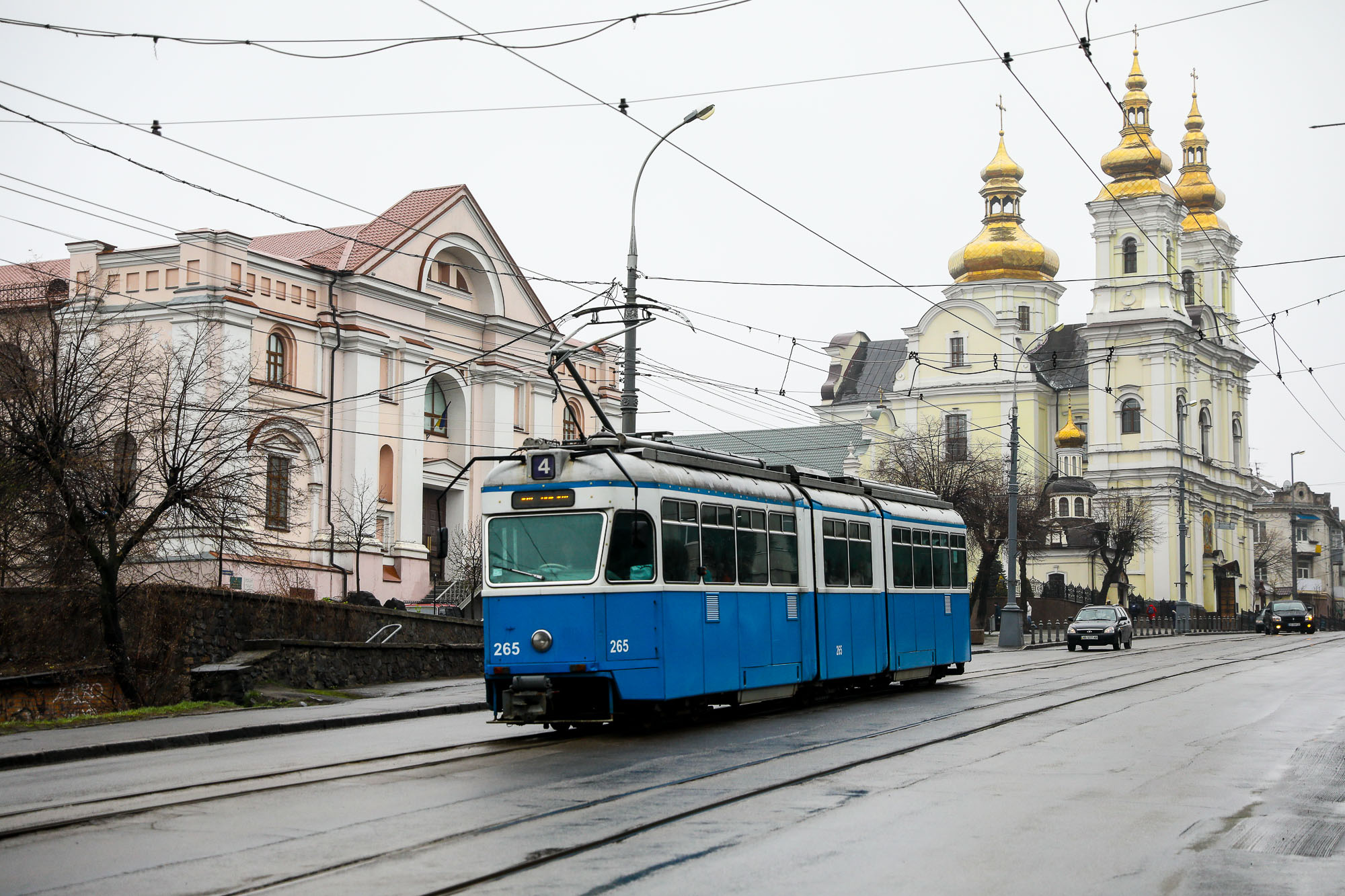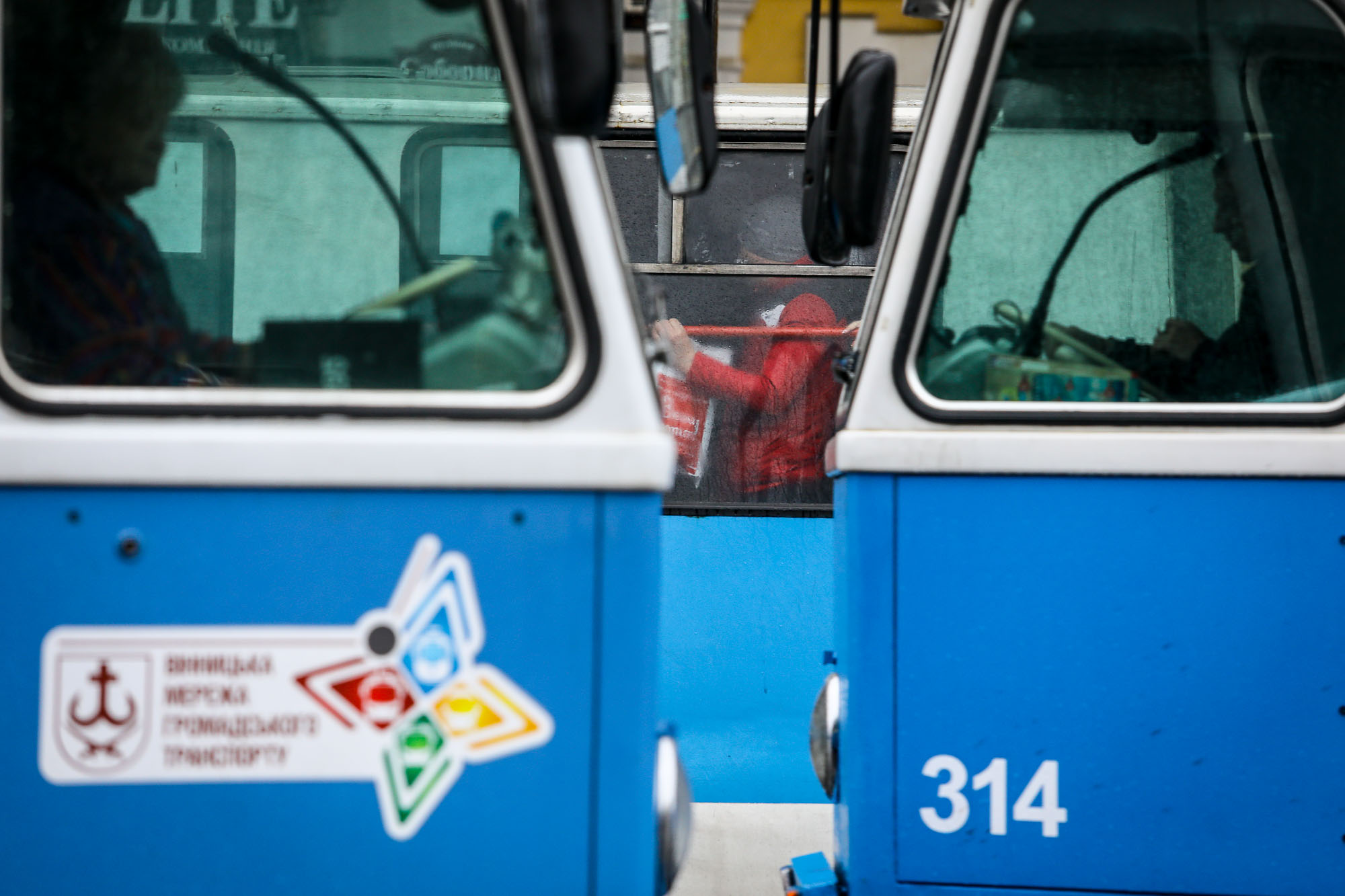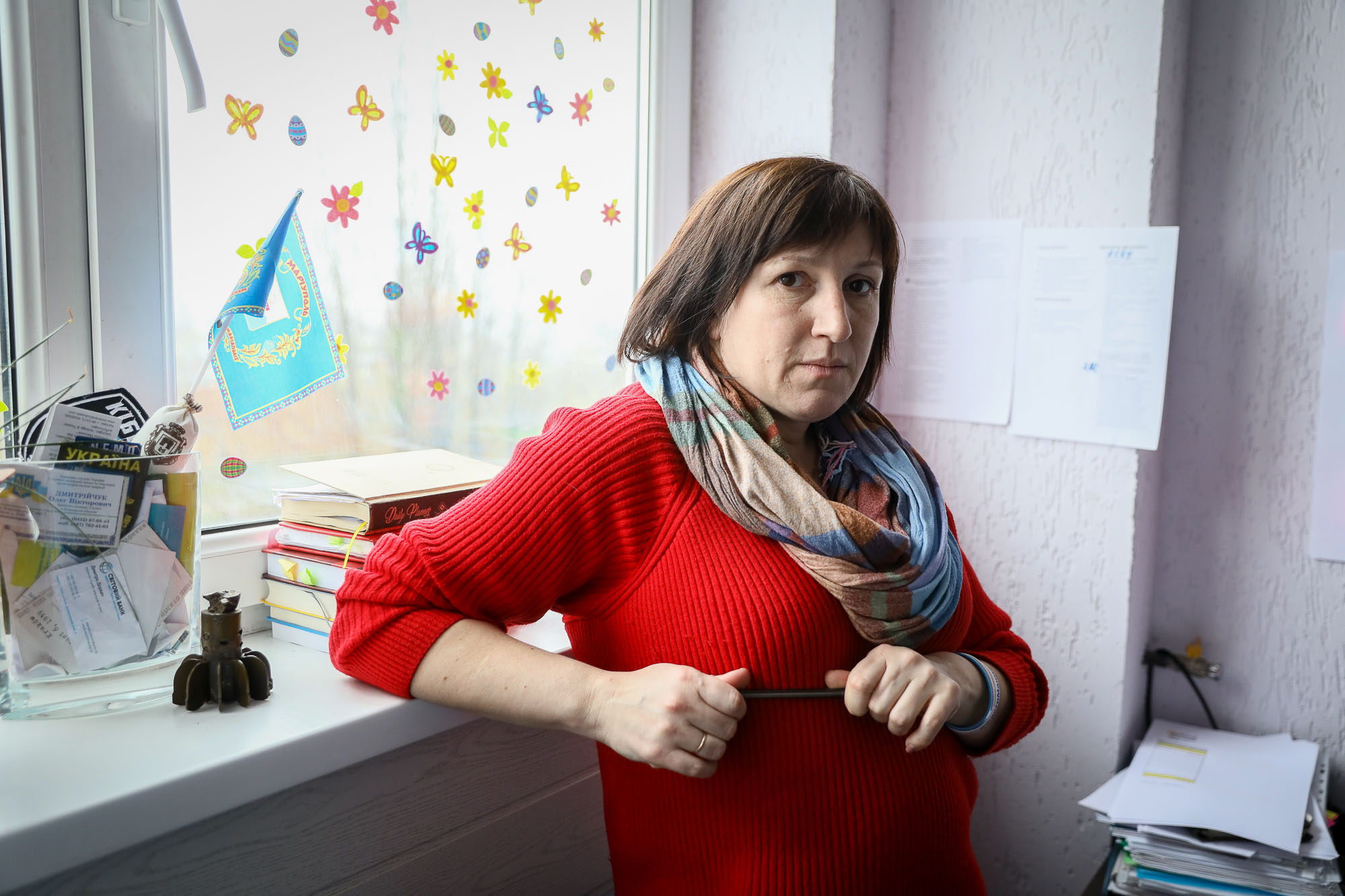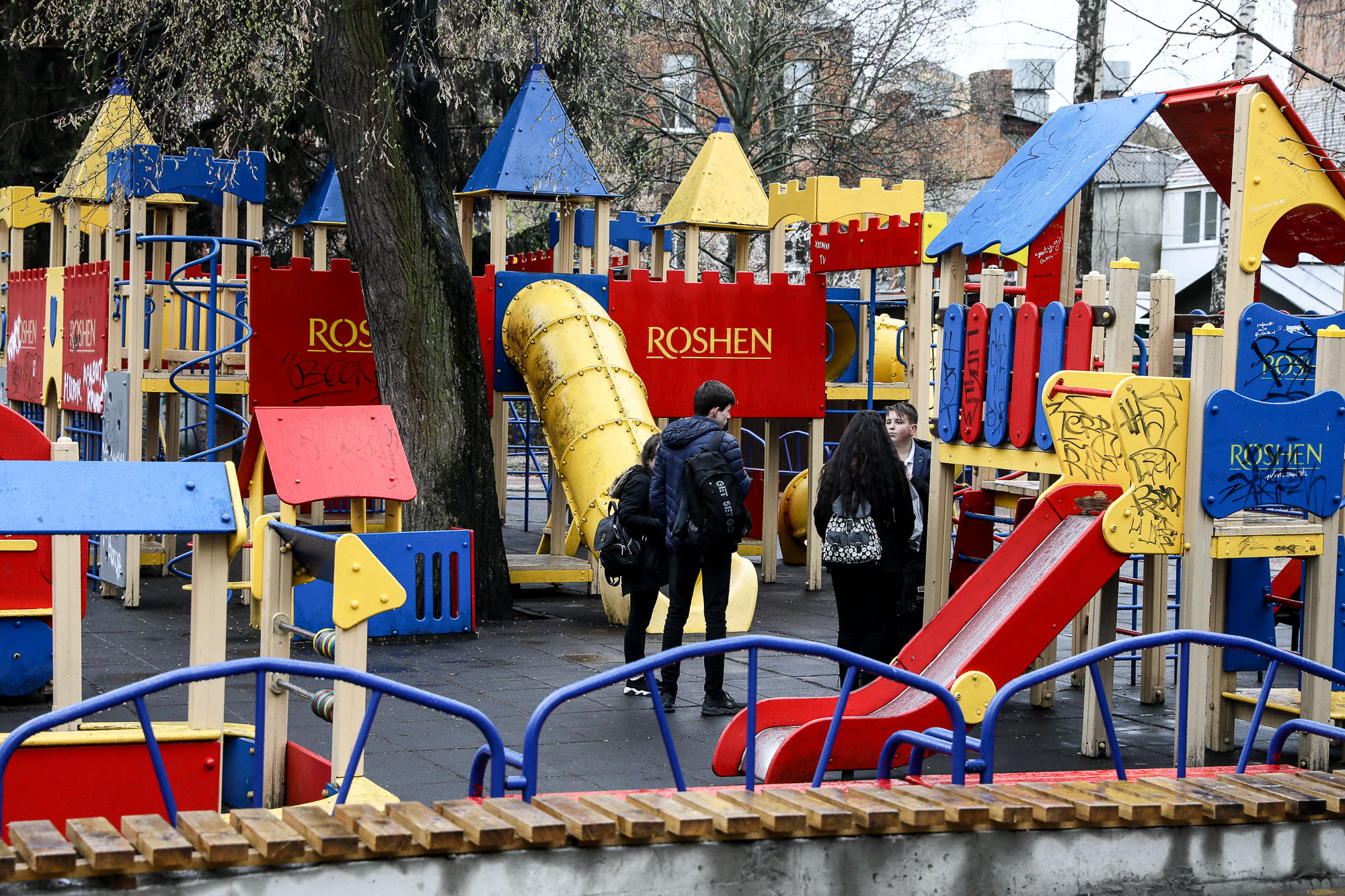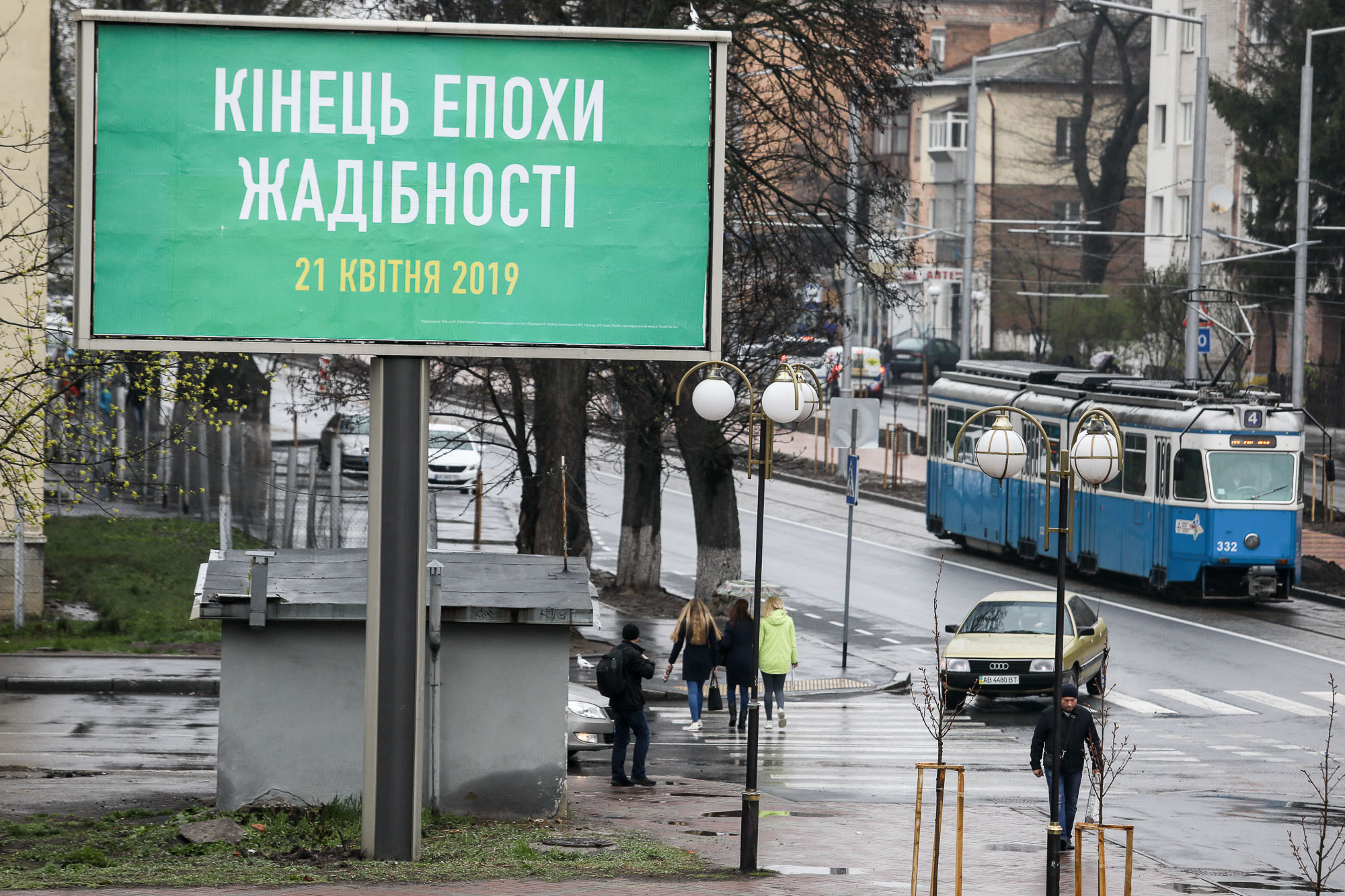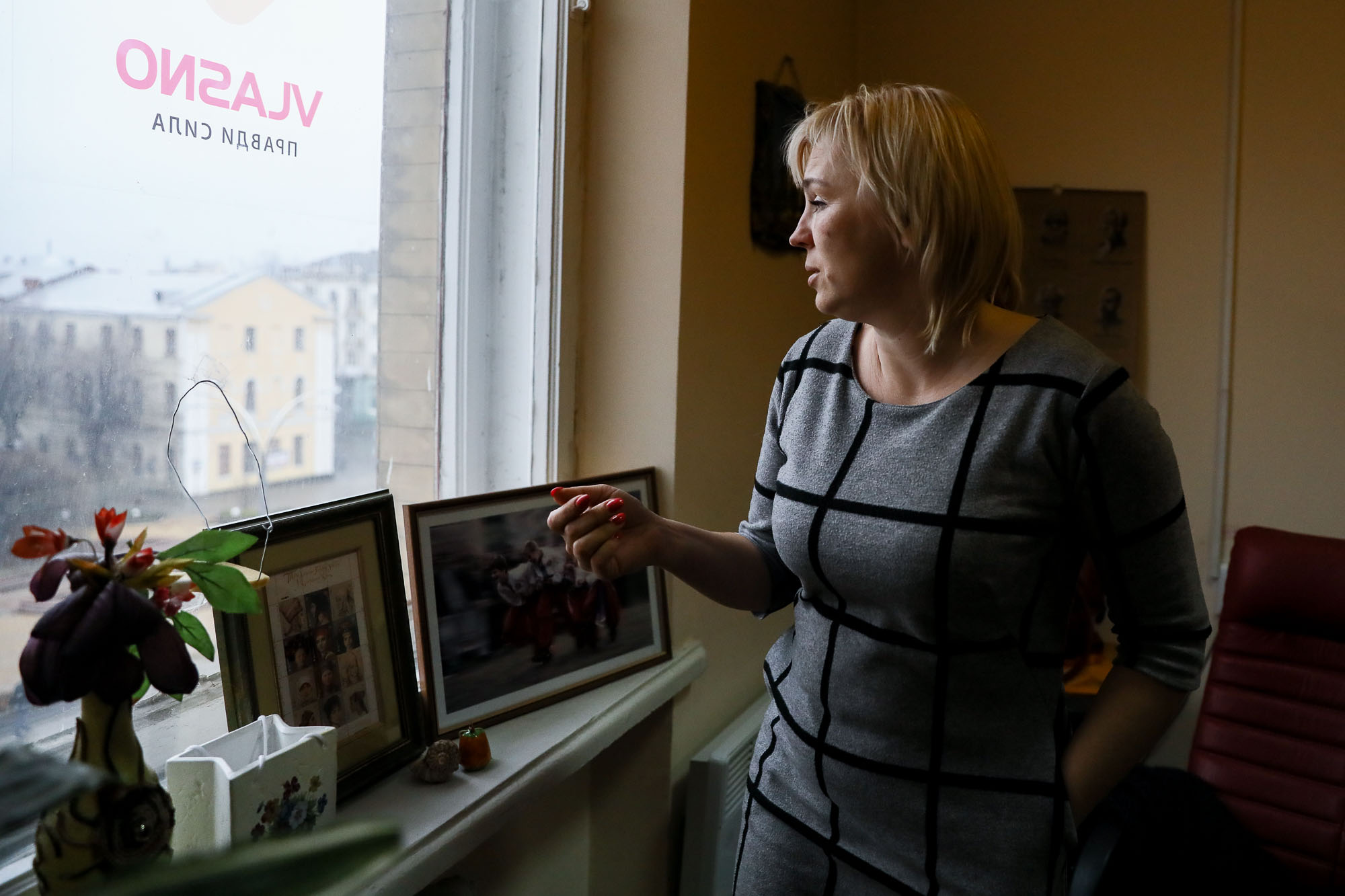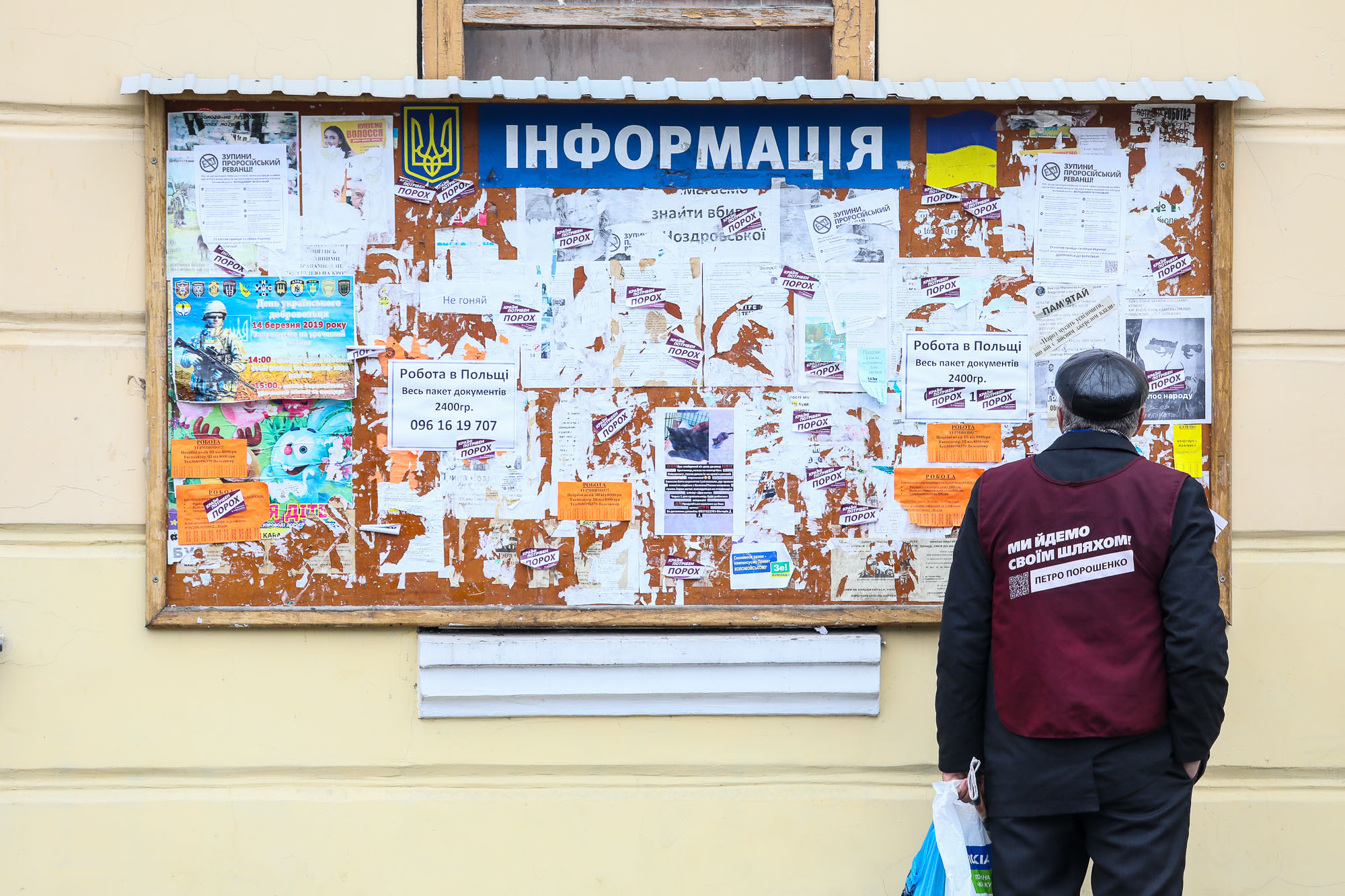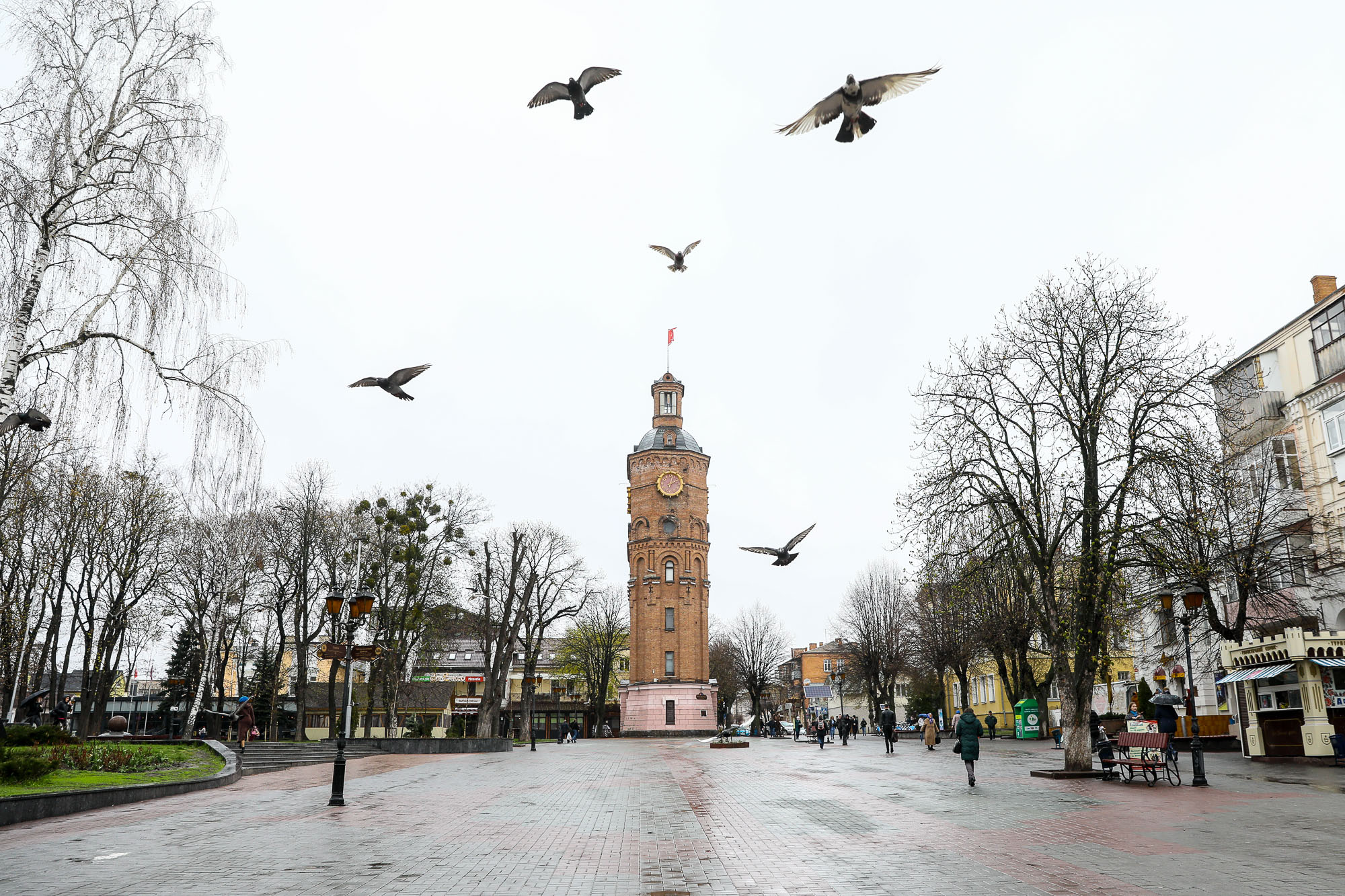VINNYTSIA, Ukraine — Two campaign workers for President Petro Poroshenko stroll across the central square in Vinnytsia under steady drizzle.
Some pedestrians greet them, but none agree to take the campaign newspapers they’re handing out. An acquaintance stops to ask one of the campaign workers if Poroshenko will win the election. The campaign worker, a man in his 50s, just sighs and shrugs.
But he doesn’t look too saddened at the low chances of his candidate. He admits that “Poroshenko made a lot of mistakes,” adding though that Poroshenko’s rival, actor and political satirist Volodymyr Zelenskiy, is “just a puppet.”
His colleague, a middle-aged woman, is not even sure she will vote for the candidate she’s campaigning for.
“Maybe I will just tear up my ballot,” she told the Kyiv Post without giving her name, as she said she wasn’t allowed to talk to the press.
Vinnytsia, a city of 370,000 people located in 240 kilometers southwest of Kyiv, is frequently said to be a Poroshenko stronghold — he owns two confectionary plants and a dairy factory here. And it was here that Poroshenko was first elected to parliament in 1998, and then again in 2012. Both his father and elder son were deputies in the oblast council.
But just days before the April 21 run-off, where Poroshenko will compete against Zelenskiy, residents are divided, or unsure who they will vote for.
In the first round, Poroshenko won in Vinnytsia city but was second after Zelenskiy in Vinnytsia Oblast. Zelenskiy received 23 percent support in the oblast, while Poroshenko got 22 percent.
Poroshenko’s national rating among decided voters is now just 25 percent, against 72 percent for Zelenskiy, according to the recent poll by Kyiv International Institute of Sociology.
Taisa Gaida, head of the AutoMaidan civic group and the local coordinator for the Chesno anti-corruption watchdog, said both residents and authorities in Vinnytsia support not Poroshenko, but his loyalist and former protégé, Prime Minister Volodymyr Groysman, a native of Vinnytsia and its mayor in 2006–2014.
And just like Groysman, who has announced that his government is ready to work with any president, many people in Vinnytsia appear ready to accept Poroshenko’s defeat.
“I was told that the City Council has already bought green felt-tip pens,” Gaida said, referring to the green color of Zelenskiy’s campaign.
Sugar king
On April 16, workers were setting up a large stage by the front of Pivdenny Buh River in Vinnytsia, preparing for the grand restarting of the Roshen fountain, one of Vinnytsia’s landmarks, which had been turned off for the winter. It will be started again on April 20, the day before the election.
Poroshenko paid about $4.6 million for the fountain, which opened in 2011. It stands in front of his confectionary factory, Roshen.
But many locals don’t know that the fountain is now being maintained using city budget funds, said Olga Malinovska, the CEO of Vlasno Vinnytsia’s news agency and a former activist of the EuroMaidan Revolution that ousted former President Viktor Yanukovych and led to Poroshenko’s election in 2014.
“The residents of Vinnytsia pay to advertise the (Roshen) confectionary,” she said. And when the level of water in the river falls, the authorities open the dam to keep the fountain working, after which the water in some local wells disappears, she added.
Back in the 1970–1980s Vinnytsia Oblast was the center of the sugar industry in the Soviet Union. According to Malinovska, when Poroshenko privatized the state-owned confectionaries and sugar plants in Vinnytsia Oblast after the Soviet Union’s collapse in the early 1990s, many locals lost their jobs as some plants closed.
Born in the city of Bolgrad in the south of Odesa Oblast, Poroshenko still hasn’t managed to become a “native” of Vinnytsia regardless of his long connections with the city.
“He’s not ours,” Malinovska said.
Unlike him, Groysman was born and brought up in Vinnytsia, and was elected mayor twice. The current governor of Vinnytsia Oblast Valeriy Koroviy was Groysman’s deputy when Groysman was mayor.
In early March, Poroshenko even skipped a visit to Vinnytsia for a meeting of the Regional Development Council, sending Groysman instead. When he eventually came to the city on his campaign tour on March 27, it didn’t go well. The National Corps nationalist group clashed with the police and shouted demands that some of his business allies, accused of embezzlement in the defense sector, be imprisoned.
Earlier, on Feb. 17 a group of mostly elderly activists who rally every Sunday on the main square turned Poroshenko’s campaign tent upside down and tore up his campaign newspapers. After that, Poroshenko’s tent was removed from the square.
Zelenskiy’s campaign
“The end of the era of greediness,” reads a Zelenskiy campaign billboard — the only political billboard the Kyiv Post saw in the city during a day there. Near it are several universities and three polling stations where the majority of voters supported Zelenskiy in the first round of the election on March 31.
Svitlana Dabizha, 28, a barista at a coffee shop located near Zelenskiy’s billboard, said she and most of her co-workers and customers support Zelenskiy.
“I used to like Poroshenko, he did a lot for our city. But now I’m ashamed of him,” she said.
Dabizha said it was embarrassing for her to see Poroshenko singing and dancing at a stadium in Kyiv during his rally on April 14, on the 5th anniversary of the start of Russia’s war in eastern Ukraine. On that Day, Vinnytsia was commemorating local soldiers who were killed in the war.
Zelenskiy was supposed to visit Vinnytsia with his Kvartal 95 show on Feb. 14, but the local authorities banned him from performing at the Palace of Officers, the biggest local concert hall, allegedly because it constituted political campaigning on the territory of a military unit, which is against the law. So Zelenskiy apologized to the locals, returned the money for tickets, and made no more attempts to visit the city during the campaign.
Malinovska said the journalists of her media, Vlasno Vinnytsia, failed to find any representatives of Zelenskiy’s campaign in the city. Neither did they find evidence that Hryhoriy Kaletnyk, a former lawmaker from Vinnytsia who was in the party of disgraced ex-President Yanukovych, was behind Zelenskiy’s campaign in the city — a common belief of local supporters of Poroshenko.
Leaflets smearing Zelenskiy were often put in the locals’ mailboxes during the campaign, according to Malinovska and also reports by the Opora election watchdog.
Campaigning and violations
A big information board at the central square in Vinnytsia reflects the various hopes and concerns its residents have.
It has ads about work in Poland, the search for the owner of a recently found cat, announcement about a rally in support of army volunteers, several ads against Zelenskiy, one ad against Poroshenko and Groysman, several ads looking to sell and buy apartments, a portrait of the 19th century poet and national hero Taras Shevchenko, and a dozen of small stickers reading that Ukraine needs Poroshenko, one of which is covering Shevchenko’s mouth.
Apart from the board and the lonely pair of Poroshenko campaign workers, there’s almost no visible campaigning in the city.
The AutoMaidan’s Gaida said that before the first round, the city council had been sending out a plan for the development of Vinnytsia on behalf of Poroshenko, which represented covert campaigning for the president.
During the first round, she was present at one local electoral office and spotted 695 voting ballots for Poroshenko that didn’t have the required stamps and so could be added by fraudsters looking to rig the result. The police are now investigating this case.
Malinovska said that after the first round of the elections the oblast governor, Valeriy Koroviy, at an open meeting with the press present reprimanded representatives of local communities for Poroshenko’s poor result.
She thinks such methods won’t help.
“Times have changed,” she said. “People are different now. They won’t listen if the village heads tell them who to vote for.”
